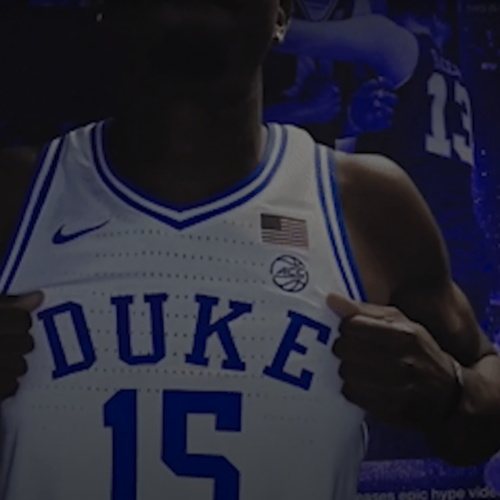13 Nov Global Pages Launch on Facebook – Should Brands Make the Switch?
Facebook recently launched Global Pages for brands interested in marketing to multiple countries. Global Pages allow you to share a unified Facebook social media marketing and branding strategy between the global brand and individual country pages and come with a host of exciting features.
You get credit for all the fans that are currently fragmented across country-specific pages, you can ensure fans aren’t hit with irrelevant messaging meant for other countries, and as the social media manager of a global page you could* get access to all your subsidiaries’ fans. Sounds like every global brand’s dream, right?
You might want to think twice about making the switch to Global Pages for your global brand.
How Do Facebook Global Pages Work?
A user’s IP address controls which page he or she will see.
By default, users will be redirected to the country page that corresponds with their IP address. If their country does not have a country page associated with the Global Page group, they will see the Global Page by default. A user can choose to see one of the other pages associated with the Global Page using the “Switch Region” under page settings.

Fan count numbers will be shown as a cumulative number.
All pages under the Global Page structure will share the same (consumer-facing) fan count and PTAT numbers. Each country page will still retain its own insights and analytics associated with that page, and Global Page administrators will now have access to information about fan engagement within each country. However, the consumer-facing number will be a cumulative number of all the fans of the country pages and the Global Page.
One brand Facebook URL and one option in Facebook search.
All of your brand pages that have opted into the Global Page format can be accessed through one result in Facebook search and one Facebook URL. For example, http://www.facebook.com/HolidayInn will direct you to the Holiday Inn country page that corresponds with your IP address, or the location that you have saved under page settings. Locations that have not opted-in to the Global Page program will still show up as individual pages.

Individual country pages can represent geographic regions and multiple countries, but not cities or states.
Global Pages are managed and tracked at the country level. Brands can choose to group countries together (e.g. North America to include United States, Canada and Mexico) or countries can be broken up individually. Presently, Facebook only supports this structure on a country level and does not allow administrators to use specific cities as their targeted areas.
Individual country pages can still geo-target posts to specific cities, states/regions, languages and countries within their target group.
Location-specific pages should ensure news feeds, stories, cover photos, profile pictures, timelines and applications are relevant to the areas that are included in that country’s geographical subset. Cities, states, languages and countries in each location can still be targeted via Facebook’s geo-targeting mechanism within the Country/Region.
Global Page administrators will NOT have special access to the local page content through Facebook’s interface.
Global Page administrators are required to manually request administrative access for a country page to publish content to a specific region, or ask the country page to send out the updates from its Facebook administrative panel. The Global Page will not be able to edit individual country pages through Facebook (without permission), and country pages will not have access to update the Global Page.
A competitor’s country-specific fan counts will be visible to all brands (coming soon).
According to Facebook, later this year, brands will be able to see their competitors’ country-specific fan count numbers for benchmarking purposes.

Should Brands Switch to Facebook Global Pages?
This new feature indicates that Facebook is interested in making management of global fan bases more convenient for brands. Several opportunities and potential roadblocks exist for brands when deciding to integrate their different theaters into one unified presence.
Opportunities:
- Targeted Marketing Messages: Brands that use the Global Page structure could send country-specific updates without geo-targeting individual posts and can tailor their promotions and creative for each country. Theoretically, fewer fans will be restricted from entering contests hosted on Facebook tabs, and more fans will be able to receive targeted promotions specific to their country.
- Detailed Fan Data: Global Page administrators will have the ability to identify which regions are most popular and active with the increased engagement and fan growth data available. This information could influence global marketing plans.
- One Obvious URL: Brands that wish to publish marketing messages containing a Facebook URL could now share one single brand URL. Country-specific URL’s will no longer be needed, as users will be sent to the country-specific page based on their IP address.
- Less Search Competition: Currently, Facebook search forces brands to compete with other country-specific fan pages. When a user searches for a brand in any country, he or she will now be able to easily navigate to the country page that is most relevant for them.
Roadblocks:
- Less Global Control: With fans being routed immediately to the country page that matches their IP address, the Global Page will only be seen by fans that do not have a corresponding country page. This minimized global presence could be detrimental to a global brand on Facebook that has an active presence for fans on Facebook, or in the case of a brand with country pages that rarely post or offer engaging opportunities.
- Decreased Engagement Leads to Slower Fan Growth: While outward facing fan count numbers will seem to rise for those brands that aggregate country pages, fan engagement will actually now be dispersed to individual country pages. Less engagement with updates means fewer news feed inclusions, which could lead to slower fan growth for brands.
- Management: A third party tool would be required to allow for cross-publishing content to multiple fan pages to ensure all fans are being communicated with regularly and consistently from the country pages. From a management perspective, brands would need to obtain administrative access from each theater to be able to post content to individual country pages.
- Alignment: Proper alignment and process would be required between brand managers and country page administrators. Individual theater fan pages are currently managed from within those theaters. Coordinating with each theater to gain buy-in for a Global Page rollup is required.
- Less Control Over Fan Management: The Global Page will redirect its fans to many different country pages, and it’s possible that the Global Page will become the least engaged page of the brand set.
Recommendation for Most Global Brands
Taking into account what we know about the limitations of Facebook’s new offering and the needs of the many global brands we work with every day, the following challenges of Global Page functionality far outweigh the potential benefits:
- Difficulty in aligning individual subsidiaries on day-to-day management of Facebook content and pages
- Requirement of a (sometimes cost-prohibitive) third party tool to publish Facebook content across multiple country pages
- The unintended result that fans travelling across the globe or living temporarily in another country might not want to be tied to a certain country page simply because of their IP address
- Dispersing fan engagement across multiple country pages, which will lead to lower overall engagement rates and fewer news feed inclusions
Facebook Global Pages are new tools with limited capabilities at this time. Additional opportunities for brands to take advantage of Global Pages may exist in the future. But presently, Global Pages are not mature enough for us to recommend that brands commit the time and resources necessary to manage effectively.






